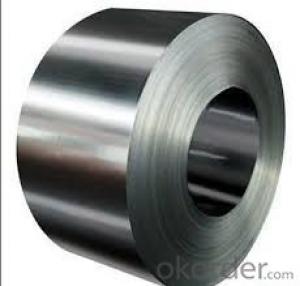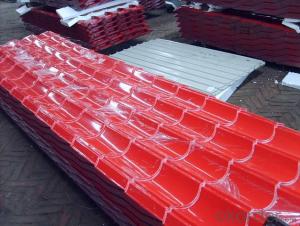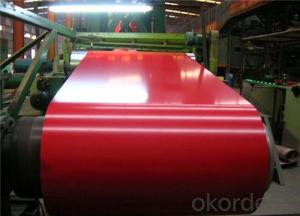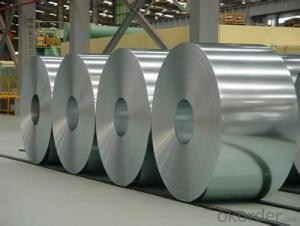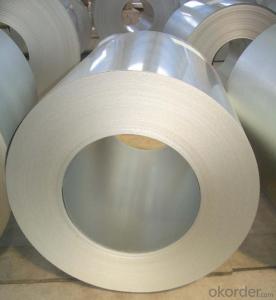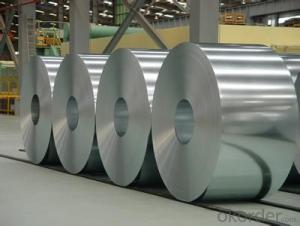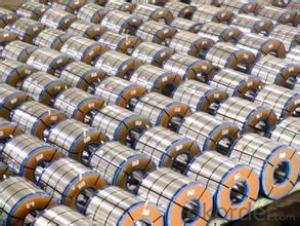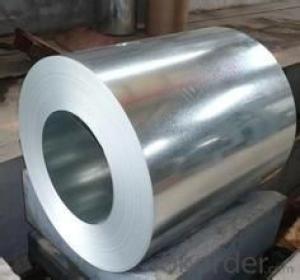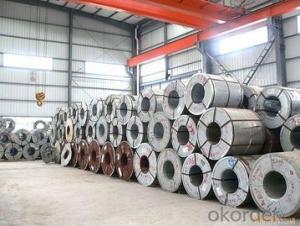Hot-dip Aluzinc Steel Building Roof Walls with Beautiful Appearance
- Loading Port:
- China main port
- Payment Terms:
- TT OR LC
- Min Order Qty:
- 50 m.t.
- Supply Capability:
- 10000 m.t./month
OKorder Service Pledge
OKorder Financial Service
You Might Also Like
Hot-dip Aluzinc Steel Building Roof Walls with Beautiful Appearance
1. Description of Hot-dip Aluzinc Steel Building Roof Walls with Beautiful Appearance:
Hot-dip aluzinc steel structure is composed of aluminum-zinc alloy, consisting of 55% aluminum, 43% zinc and 2% at 600 ℃ silicon solidification temperature and composition, the entire structure is made of aluminum - iron - silicon - zinc, to form a dense quaternary crystals an alloy.
Applications of hot-dip aluzinc steel:
1)Building: roof, walls, garages, soundproof walls, pipes and modular housing.
2)Automotive: muffler, exhaust pipes, wiper accessories, fuel tank, truck boxes, etc.
3)Appliances: refrigerator back, gas stove, air conditioners, microwave oven, LCD frame, 4)CRT-proof band, LED backlight, electrical cabinets, etc.
2.Main Features of Hot-dip Aluzinc Steel Building Roof Walls with Beautiful Appearance:
• Excellent corrosion resistance
• High temperature oxidation resistance
• High hot reflectance
•Surface coating
3.Hot-dip Aluzinc Steel Building Roof Walls with Beautiful Appearance Images:
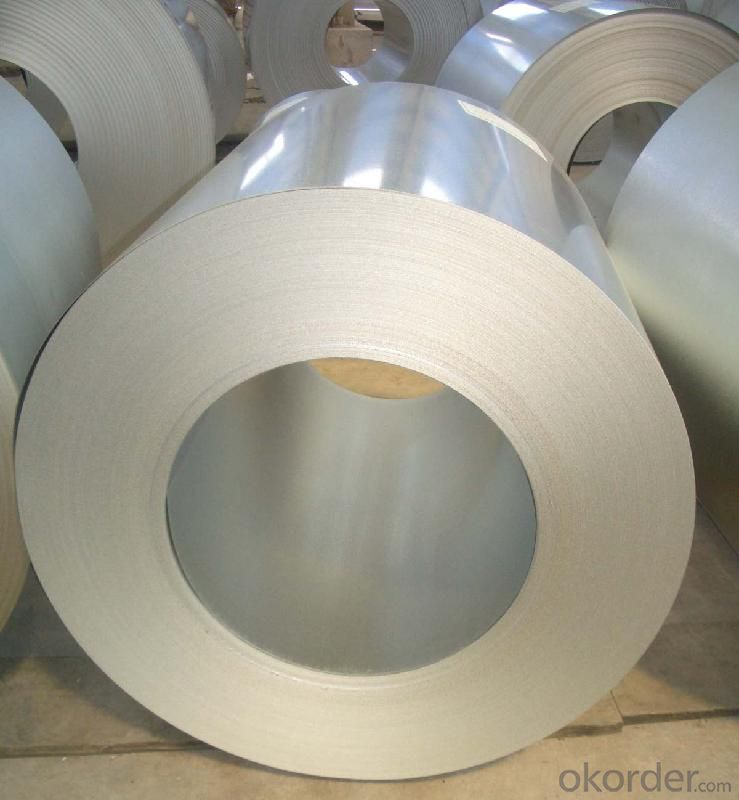
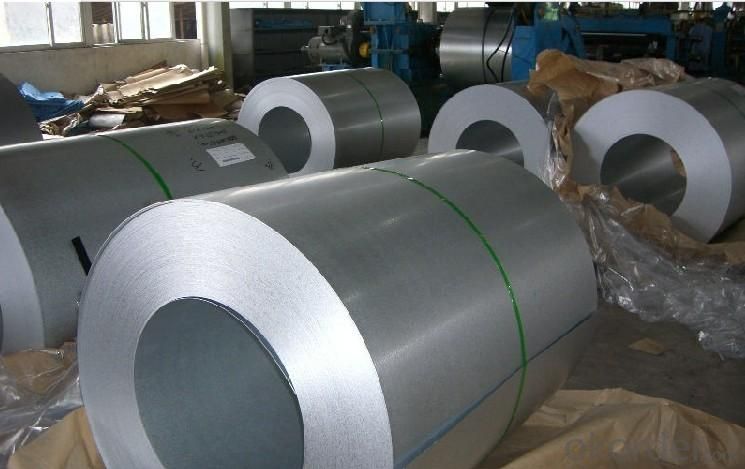
4.Hot-dip Aluzinc Steel Specification
AVAILABLE SPECIFICATION
HOT-DIP ALUZINC STEEL COILS | |
THICKNESS | 0.16mm-3.5mm |
WIDTH | 1250mm MAX |
COATING MASS | 30g/ m2-185 g/ m2 |
SPANGLE | Regular Spangle, Minimized Spangle, Zero Spangle |
SURFACE TREATMENT | Chromated / non-chromated, Oiled / non-oiled, Anti Finger Print |
COIL INNER DIAMETER | 508mm or 610mm |
5.FAQ of Hot-dip Aluzinc Steel
We have organized several common questions for our clients,may help you sincerely:
1.What advantages does your company have?
Cement : Annual capacity of 400 million tons, No. 1 in the world
Fiberglass: Annual capacity of 1 million tons fiberglass, No. 1 in the world.
Composite Materials — Rotor Blade: Annual production capacity of 15,000 pieces, No.1 in China, Top3 worldwide
Commercial concrete: Annual capacity of 0.35 billion cubic meters, No. 1 in the world.
Refractory Material: Annual capacity of 40,000 tons casting refractory, No.1 in the world.
2.What advantages do your products have?
Firstly, our base material is of high quality, Their performance is in smooth and flat surface,no edge wave ,good flexibility.
Secondly, high quality zinc ingoats, 97.5% zinc,1.5% silicon,1% others, the same zinc coating measured by metal coating thickness or by zinc weight
Thirdly, high precision: Tolerance strictly according to ASTM or JISG standard even more rigid.
- Q: What are the different methods of shearing steel coils?
- There are several methods used for shearing steel coils, including rotary shearing, slitting, and laser cutting. Rotary shearing involves the use of rotating blades to cut the coil into smaller sections. Slitting involves passing the coil through a set of circular blades that make multiple cuts parallel to the coil's width. Laser cutting, on the other hand, uses a high-powered laser beam to precisely cut through the steel coil. Each method has its advantages and is chosen based on factors such as the desired accuracy, speed, and type of steel being cut.
- Q: What are the main factors that affect the formability of steel coils?
- The main factors that affect the formability of steel coils are the composition and microstructure of the steel, the thickness and width of the coil, the temperature during forming, and the mechanical properties of the steel.
- Q: I want to purchase steel for construction purpose, What aspects should I keep in mind while deciding that which company should I contact for this?
- I'd keep in mind whether your potential supplier is close enough to still give you good service, and provide delivery when you need it. I'd want to contact as many local companies as possible, in order to get competitive bids. Then, I'd pick the lowest cost bids that I felt would still provide the service I needed. Most decisions of this sort, in the end, are based on price.
- Q: Ok, I need two negative facts about steel wheels and two for aluminum wheels. im designing a wheel for a project in design and draw for production class. Also if you find a web site that you got the info from plz refrence it i need to write down the source of the info, but if you can't its ok. Thanks
- Negative facts for steel wheels: (1) Not as many style choices as aluminum. (2) Rust easily even when painted or powder coated, due to rock chips. (3) Heaver than aluminum, as far as fuel economy. Negative facts for aluminum wheels: (1) More sensitive to proper torquing of lug nuts. IE torque must be checked more often. (2) Susceptible to impact damage from road hazards much more than steel. (3) Need constant attention to prevent oxidation. Are these what you are looking for? I hope so. Wingman
- Q: Well im currently doing a project. Wanna help me? Because trust me, i really need it. You know how steel was created in China? If you didnt, you just learned something newww(: but anyways got any info on that? Websites? or just info from websites? Well lemme know because if its the best you get Best Answer Easy points right? (: Okay thanksss (:
- Steel is created in a primitive way whenever iron oxide ore (red dirt) is mixed with wood and burned. Seemingly everyone has a pet theory how their own selected country was the first to notice and do it on purpose. Regards, Larry.
- Q: ex: boat hull made out of steel
- Well our boat hulls have two types or primer, Red Lead, or a yellow colored paint I think it was zinc-chromate. And then, numerous coats of the grey (Navy) paint. US Navy, ABE5, USS Enterprise
- Q: I do a lot of scrapping and would like to be able to separate stainless steel from regular steel. The magnet test doesn't always work since stainless can be magnetic, but what are some ways that I can for sure tell the difference? Or even something like a sound that they make that may help me to tell the difference.
- Stainless steel should be non-magnetic.
- Q: How are steel coils used in the manufacturing of suspension arms?
- Steel coils are used in the manufacturing of suspension arms as they provide the necessary strength and flexibility to absorb shocks and vibrations, ensuring a smooth ride. These coils, known as coil springs, are typically mounted between the suspension arm and the vehicle's chassis, supporting the weight of the vehicle and allowing for controlled movement and suspension travel. By compressing and expanding, steel coils help absorb the impact of bumps and uneven road surfaces, providing stability and improving overall handling and comfort.
- Q: What are the environmental impacts of steel coil production?
- The environmental impacts of steel coil production include air and water pollution, deforestation, energy consumption, and greenhouse gas emissions. The production process involves the extraction of raw materials, such as iron ore and coal, which can lead to habitat destruction and soil erosion. Additionally, the high energy requirements and use of fossil fuels contribute to air pollution and greenhouse gas emissions, exacerbating climate change. The wastewater generated during production may contain harmful chemicals that can contaminate water sources and harm aquatic life. Overall, steel coil production has significant environmental implications that need to be addressed through sustainable practices and innovative technologies.
- Q: A 100 kg solid steel ball with a radius of 5 m is being spun on ice with an angular velocity of 5 rev/s pointed into the ice (clockwise rotation when viewed from above).A student shoots a 10 kg marble at the steel ball. The marble hits the ball along its side as shown with an initial velocity of 5 m/s to the left. If, right after the collision, the final velocity of the marble is 2.5 m/s to the left, what is the angular velocity of the steel ball after the collision?
- You need to do conservation of angular momentum about the steel ball's axis. Angular momentum = I.ω The steel ball's initial ω = 5 rev/s = 5*2pi rad/s = 31.4 rad/s The steel ball's moment of inertia I = (2/5)*m*r^2 = 40*25 kg.m^2 = 1000 kg.m^2 The marble's initial ω = v / r where r is the perpendicular distance from the steel ball's axis You need to look at the diagram for this. The marble's I about the steel ball's axis is I = m*r^2 where r is the same as above. (marble is treated as a point mass). Then work out the total initial ang. momentum = final ang. momentum and solve for ω...
Send your message to us
Hot-dip Aluzinc Steel Building Roof Walls with Beautiful Appearance
- Loading Port:
- China main port
- Payment Terms:
- TT OR LC
- Min Order Qty:
- 50 m.t.
- Supply Capability:
- 10000 m.t./month
OKorder Service Pledge
OKorder Financial Service
Similar products
Hot products
Hot Searches
Related keywords













